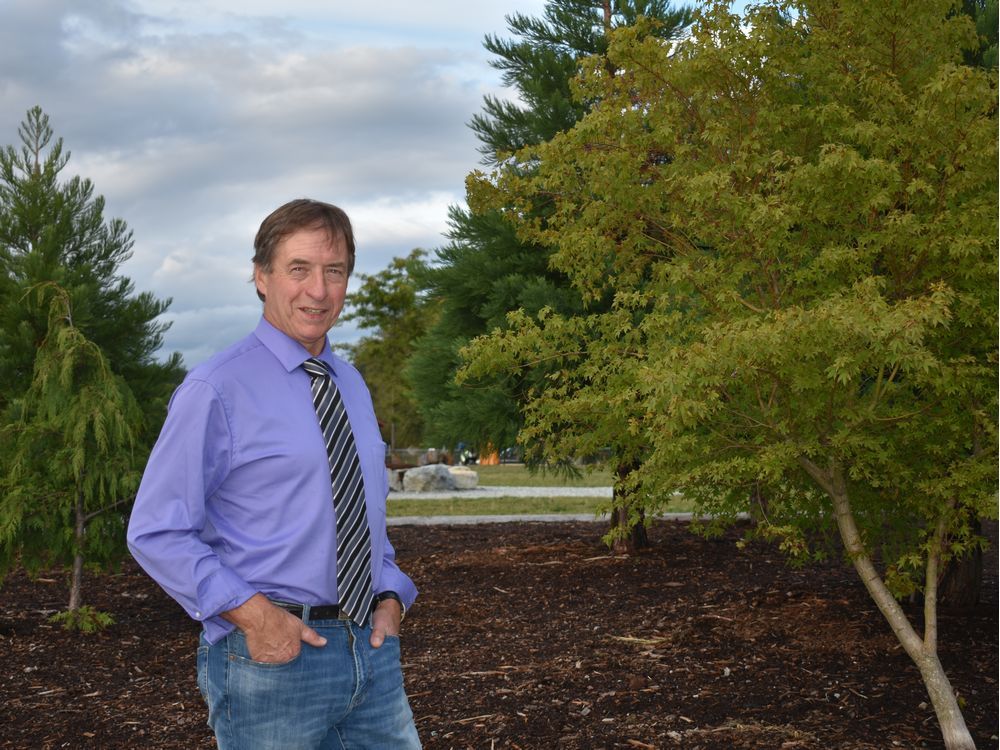Former Port Alberni mayor pushes for drug decriminalization

Credit to Author: Nick Eagland| Date: Sat, 14 Sep 2019 23:43:01 +0000
The former mayor of Port Alberni has released a report in which he supports calls for drug decriminalization in order to protect British Columbians from overdoses and other related harm, and help them find appropriate treatment.
John Douglas, who was a paramedic for 23 years, wrote “Working Towards a Solution: Resolving the Case between Crime and Addiction” following an information-gathering trip to Portugal, and recently released it to the media.
Douglas, now special projects co-ordinator for the Port Alberni Shelter Society, explained Thursday that the paper is not a scientific analysis, but rather a “from-my-gut” exploration of what he has learned while working in the fields of social housing, mental health, poverty and addiction.
He calls for the province to engage doctors, lawyers and police, as well as the public, to make addiction and possession of addictive substances solely a health issue, under healthy ministry jurisdiction. He wants the government to develop a supply model for addictive drugs to eliminate health problems associated with contaminated street drugs.
More than 4,300 people have died of an illicit-drug overdose in B.C. since the provincial government declared a public health emergency in April, 2016. Fentanyl was detected in most cases.
Douglas recommends the development of long-term, affordable and flexible treatment communities and “health teams” to provide services. He asks the province to tell the federal government “politely and firmly” that it intends to move forward with a pilot program which is open to federal participation.
“I’ve been a politician myself — no higher than a municipal level — but I find political people, as well-meaning as they are, tend to lag behind movements, sometimes, in society,” Douglas said. “I’ve talked to so many people in the health, enforcement and legal fields that all agree (addiction) should be treated as a health issue, but the political end is lagging behind because they’re afraid of losing votes or saying the wrong thing and offending somebody.”
Douglas entered politics in 2008 as a councillor in Port Alberni and served as mayor from 2011 to 2014. After the fentanyl-related overdose crisis emerged, he helped bring a sobering centre and overdose prevention and inhalation sites to the city.
His decades of experience in health care and helping people who have addictions helped him come to the conclusion that people with addictions should be in health care, not the criminal justice system.
Earlier this year, he attended a forum in Portugal where he learned about the country’s approach to addiction and overdoses. In 2001, Portugal decriminalized all drugs for personal use in response to a surge in heroin use.
“With the shelter, we’re working toward researching models of therapeutic communities that could work for treatment, if and when we can get the government to start moving in the direction of decriminalization and the direction of adequate treatment for people with addictions, instead of these pathetic 30- to 60-day treatment programs that are commonplace over here,” Douglas said.
Decriminalization would apply to all drugs — even heroin and methamphetamine — but falls short of legalization, which removes prohibitions but also develops regulations for the production, sale and use of a substance (Canada’s approach to cannabis is an example).
In a special report released last April, Provincial Health Officer Dr. Bonnie Henry urged the B.C. government to implement decriminalization for simple possession for personal use.
Henry said B.C. could use its powers under the Police Act to allow the Ministry of Public Safety and Solicitor-General to set broad provincial priorities with respect to people who use drugs. Or it could enact a regulation under the act to prevent police from using resources to enforce against simple possession offences under the federal Controlled Drugs and Substances Act.
Solicitor-General Mike Farnworth shot down Henry’s proposal, saying laws around the possession of controlled substances remain federal and “no provincial action can change that.”
Douglas sides with Henry on the issue.
“I wanted to be an additional voice to echo those findings,” he said. “I agree wholeheartedly with her. We don’t have to wait for the federal government to do this.”